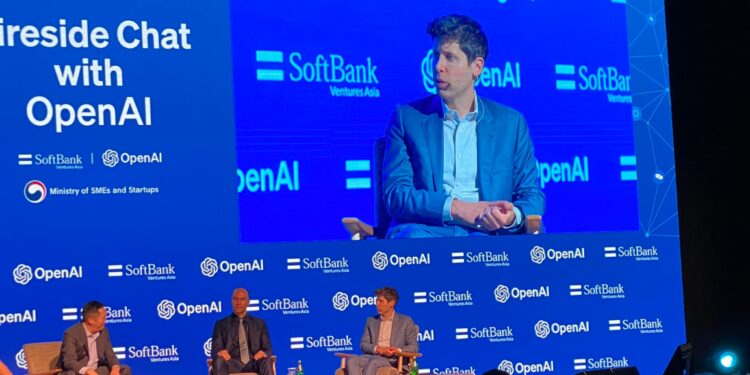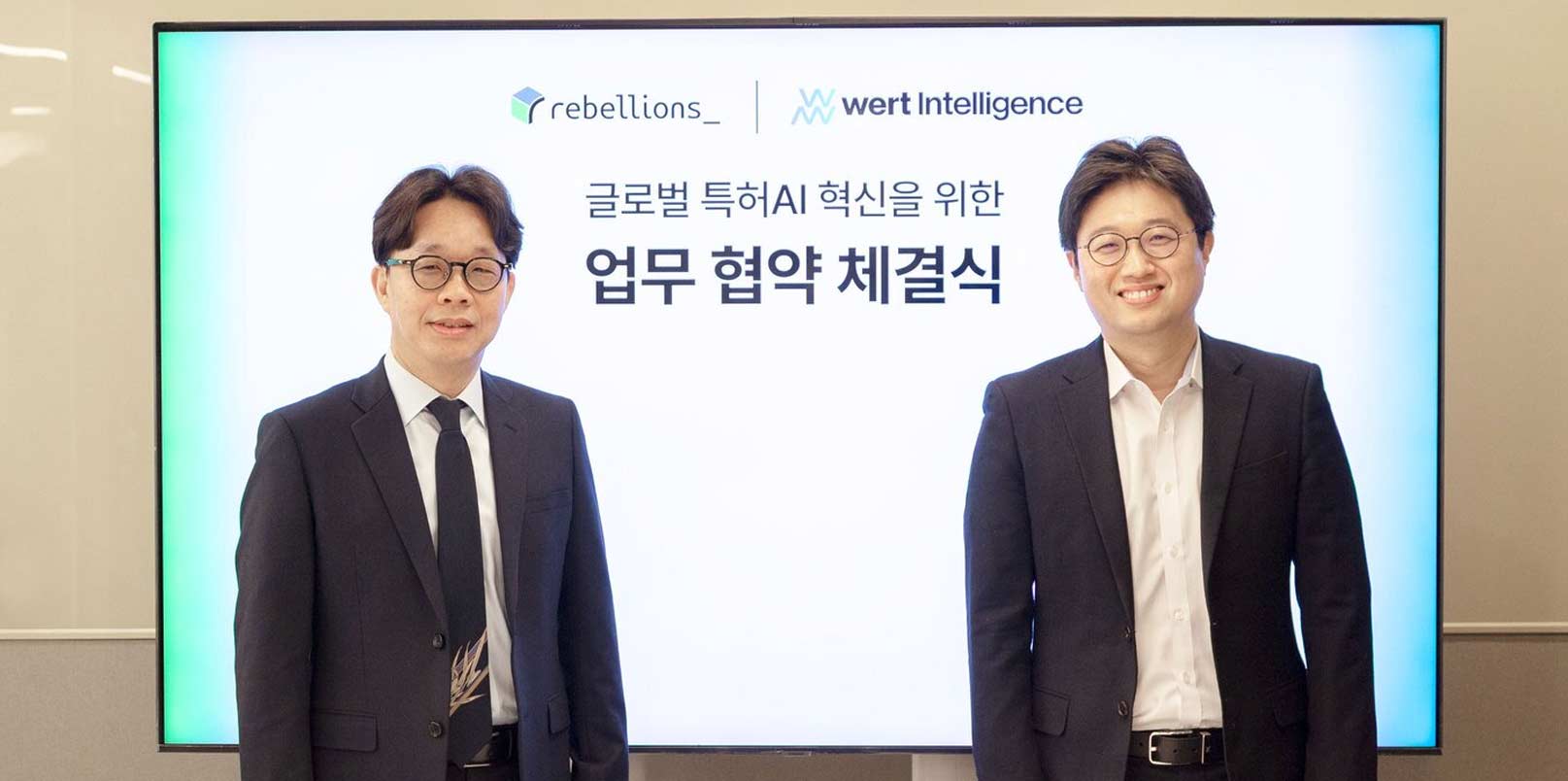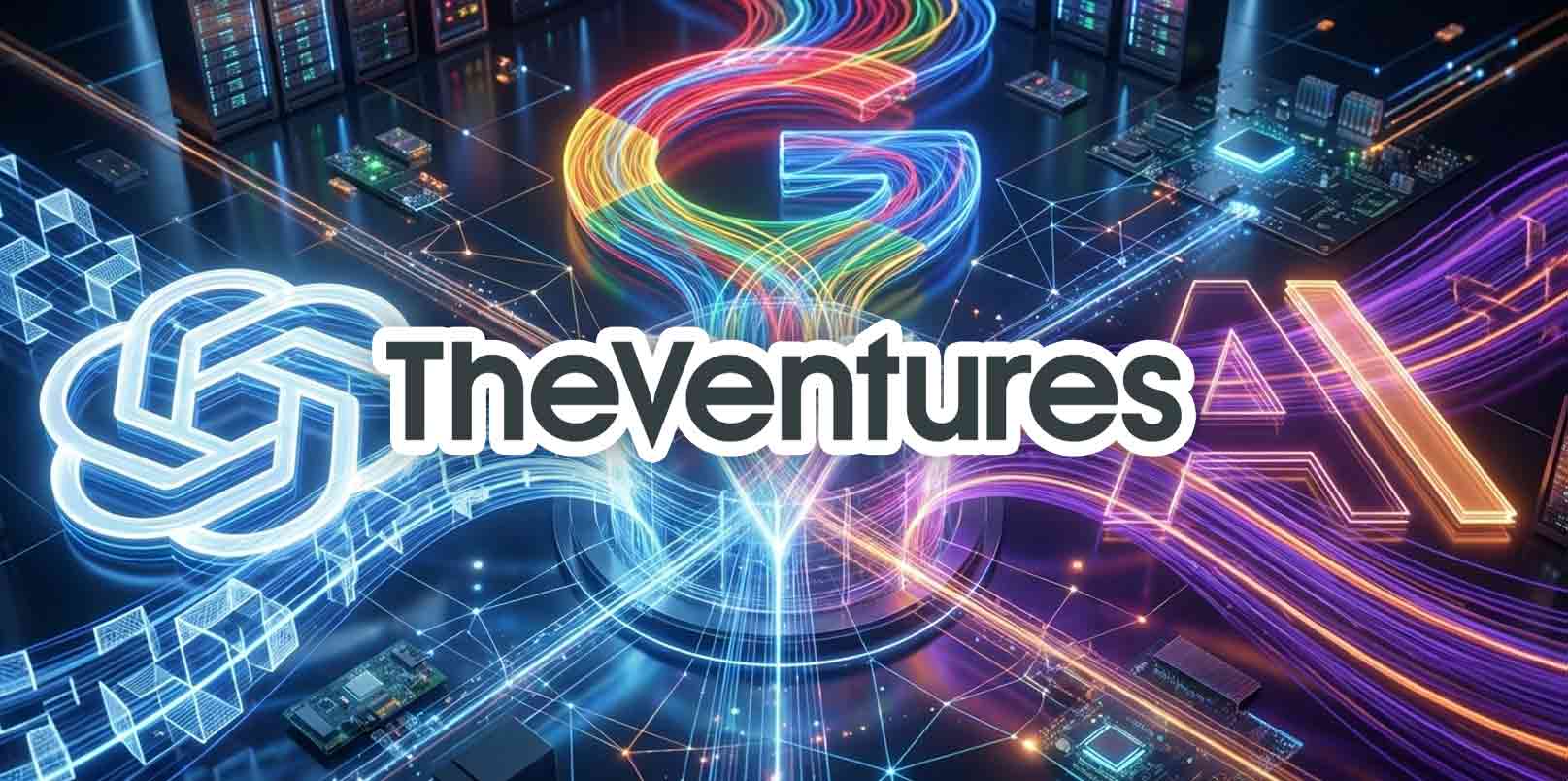OpenAI CEO Sam Altman’s recent visit to Seoul was marked by a compelling discussion on the future of AI, highlighting South Korea’s influential tech scene and detailing his vision for OpenAI.
As part of his global tour, Sam Altman visited Seoul to engage with AI users, developers, and enthusiasts. On June 9th, Sam Altman attended the ‘Fireside Chat with OpenAI,’ an event organized by the Korean Ministry of SMEs and Startups and co-hosted by SoftBank Ventures. Altman had a dialogue session with Professor Jo Kyung-hyun, a renowned AI natural language processing expert from New York University, and SoftBank Ventures, CEO Lee Jun-pyo. The OpenAI CEO also interacted with the audience as well which include Korean entrepreneurs, venture firms, startups, businesses and members of the media.
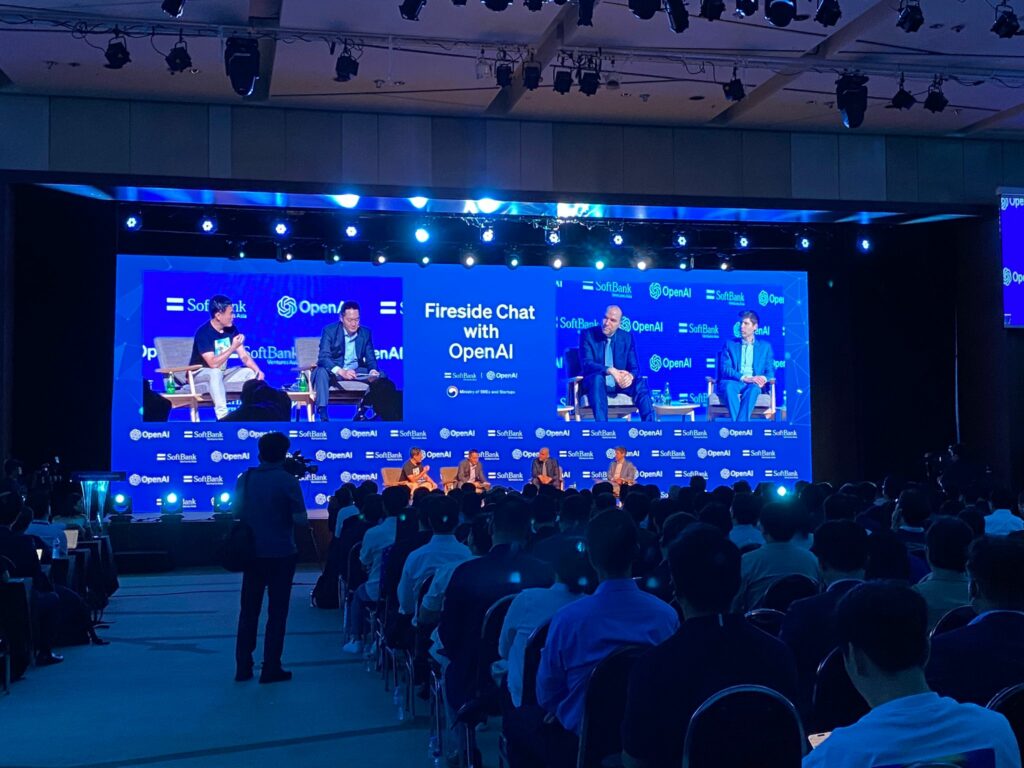
Expressing enthusiasm for Korea’s booming tech industry, Altman recognized the nation’s speedy internet infrastructure and groundbreaking companies, including Samsung, as well as a range of promising AI startups. He affirmed Korea’s potential as a key player in shaping the future of global technology and AI.
Delving into OpenAI’s evolution, Altman clarified that the company is more than just a language model or technology entity; it’s a deep learning company. Highlighting the organization’s flexibility, he discussed how OpenAI’s focus has shifted over the years. OpenAI once focused on robotics, he said, but the emphasis moved to language models as they proved more promising. The company is prepared to pivot again if a more promising AI paradigm emerges.
“AI is a field full of surprises, and a constant learning journey for the human species,” stated Sam Altman, OpenAI CEO.
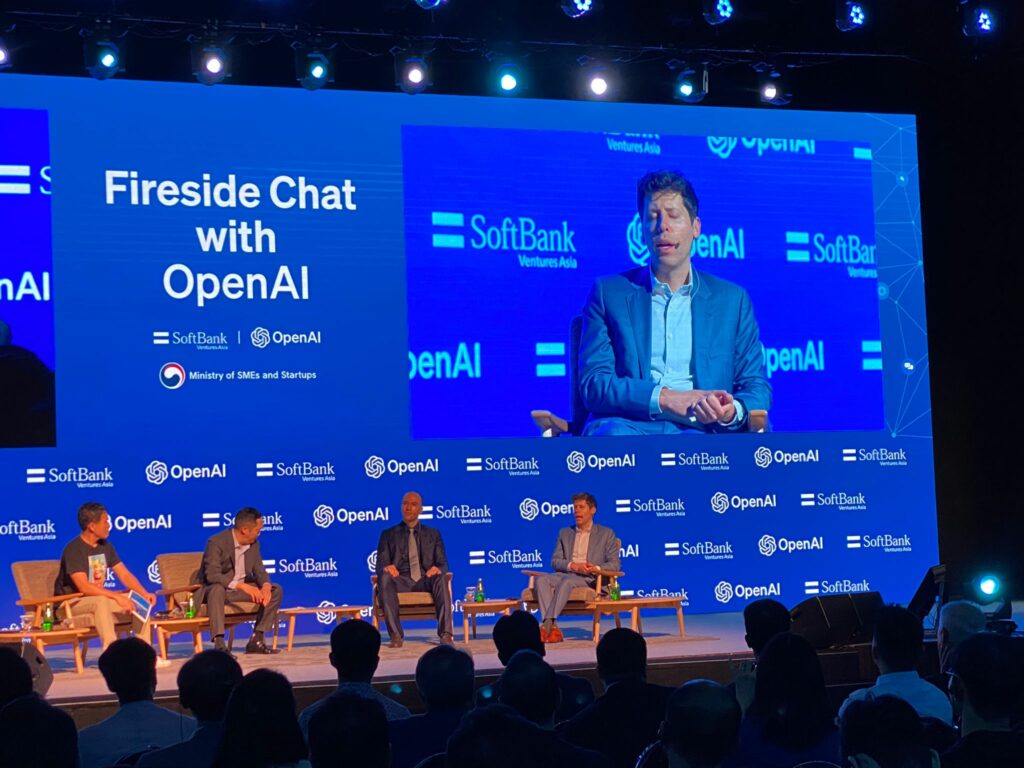
Altman also shared insights into OpenAI’s ethos, emphasizing a culture of facing reality, learning from experiences, and a commitment to serving as a global project that benefits everyone. He outlined the company’s strategy of initially deploying projects on a small scale, allowing data collection and subsequent improvements.
The complexities of recruiting for OpenAI and selling the vision of Artificial General Intelligence (AGI) were discussed. Altman spoke of the discernment needed in the third phase of a startup, when success is clear, to differentiate between people genuinely believing in the mission and those simply following the AI trend.
Altman admitted to past missteps, like the initial intention to make everything open-source—a plan they later realized might not be safe or responsible as AI technology advances.
Throughout his discussion, Altman showed a keen awareness of AI’s potential societal and economic implications. He noted the possibility of job displacement, the necessity for continuous learning, and adaptation in the face of rapidly advancing AI. He hinted at the transformative potential of AI and the need for potential regulation in various sectors.
Altman then discussed how AI might integrate into every company’s tech infrastructure, similar to how ‘mobile startups’ faded after the launch of the iPhone’s App Store.This concept extended to his view of product-market fit for AI startups. He emphasized creating products or services people love and want to use, defining product-market fit as something “so good that people spontaneously share it with their friends.
Addressing AI’s societal impact, Altman pointed out that AI advancements are primarily augmenting human productivity and creating new job categories. However, he expressed concern over the rapid pace of these changes and suggested societal adaptations might lag. Universal Basic Income (UBI) was proposed as one part of a multifaceted solution to assist individuals through this transitional period.
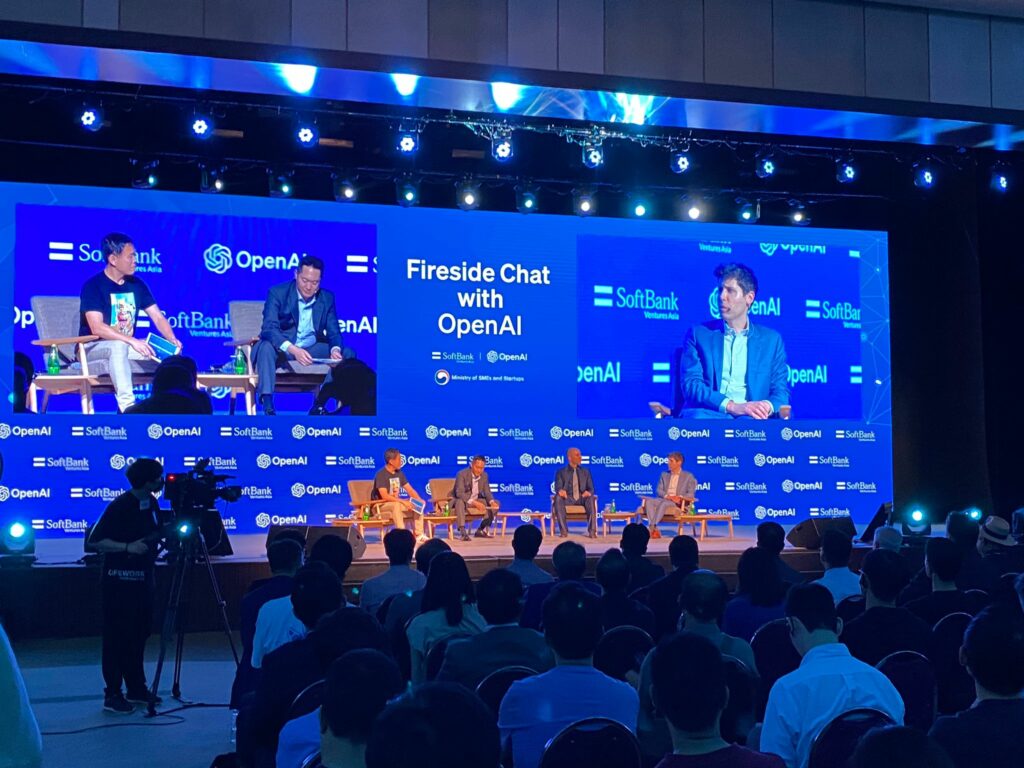
Altman concluded his remarks by offering advice for those eager to thrive in the AI era, encouraging individuals to keep up with new AI tools and technologies, learn quickly, build resilience, and gain a thorough understanding of computer mechanics and effective communication with AI systems
Overall, Altman’s visit to Seoul provided a glimpse into the dynamic landscape of AI and the potential challenges and opportunities that lie ahead. His insightful discussion emphasized the need for adaptability, international collaboration, and continuous learning amid swift technological changes. His words served to reaffirm OpenAI’s commitment to ensuring that the development and deployment of AGI benefit all of humanity.


